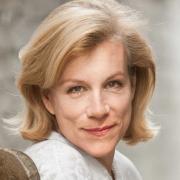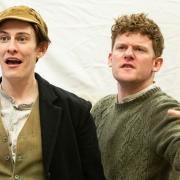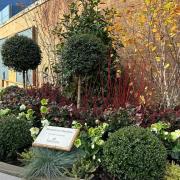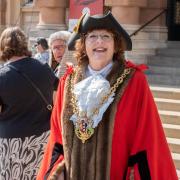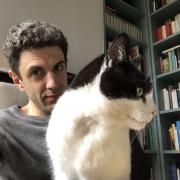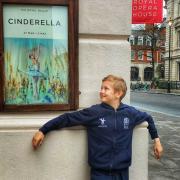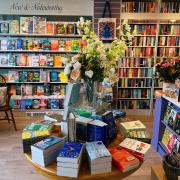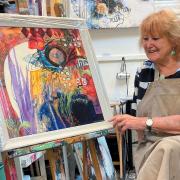As a schoolgirl in Woodbridge, novelist Emily Hauser fell in love with the epic stories of Roman and Greek history. She tells Catherine Larner how this has inspired her career as a writer

The study of ancient civilisations and ‘dead’ languages was often dismissed as the domain of stuffy schoolmasters and bored schoolboys until academic and TV presenter Mary Beard opened up the classics to a new audience.
Now one of her students has taken up the baton, publishing a novel retelling Homer’s Iliad from the perspective of the women in this epic story of love and war.
Called For the most beautiful, the book is the first of what will be a trilogy centred around the myths of the Golden Apples. It has been conceived by Emily Hauser, a passionate, award-winning young scholar whose love of Roman and Greek history and literature began at school in Suffolk.
Brought up in Clopton near Woodbridge, Emily remembers one Christmas being given a copy of the novel I, Claudius by Robert Graves and deciding this was the sort of story she wanted to write. There was a teacher at the Abbey School whom she acknowledges for firing up her passion for creative writing, and she recalls telling her Greek and Latin teacher at Orwell Park School that she wanted to study classics at university.
“For me there’s a beauty in the fact that through learning about the past, we also learn about ourselves,” Emily explains. “There is a distance but a closeness at the same time that enables you to look through a slightly distorted lens at yourself.
“You can see there are ways in which these people are so similar to us but they are also so different with their beliefs about the gods and their cultures. It’s a really interesting prism to think around issues today.”
Emily’s novel was published in January (and in paperback at the end of June) and has received stunning reviews. The historian and TV presenter Michael Scott has said of the book: “It’s a feast for the senses, richly described and effortlessly easy to read. It brings to life an ancient world long gone, and in so doing reminds us of the traumas and costs of war, which are sadly still so much a part of our world today.”
With gods and heroes, and themes of love and loss, war and friendship, the book is likely to have a wild appeal, and is unusual in its focus on the female point of view.
Emily’s second book, tracking a dangerous voyage with Jason and the Argonauts, is already drafted despite the fact that she is still completing her PhD at Yale University in the US. Each day of this five year course, Emily has set aside time away from the reading or writing for her studies, to complete her target of three pages of the novel.
“I found [writing the book] came quite naturally,” she says, while acknowledging that she is very organized and a tireless worker. “The challenge for me was to do justice to the ‘Iliad’ but at the same time to bring the characters alive. The wonderful thing about having been steeped in the Classical world for 16 years now is that I have a real sense of the surroundings so, as I was writing, lines of the ‘Iliad’ were coming to my mind.”
Emily also enjoyed reviewing and sharing what she had written each evening. “I’d read aloud the pages I’d written to my husband,” she says - even when they were in different states, they would Skype about the book. “It was so much fun to discuss it together, it became something we shared – and it was a fun evening ritual!”
Emily met her husband in the USA. She moved there when she won a Fulbright Scholarship after completing her degree at Cambridge. Impressed by the American approach to studying Classics, she then pursued a PhD at Yale.
“I had a very deep intense experience of classics at Cambridge,” she says. “The American focus is on breadth and I have found it an amazing complement.” Emily’s research in the US focuses on an approach to classics that is called ‘reception’ – it explores why classics still matters to the modern world, and Emily hopes that her future job, and her motivation as a novelist, will be to share this passion.
“The ultimate aim always will be to reach out to people and get them excited about Classics,” she says, “to help them understand more about these powerful myths and the history that really informs so much of who we are. There is such a rich cultural treasure trove and if I could be the person who could introduce people to it, to get them excited, to get them thinking about myths and history and how it relates to us now, then that will be a brilliant privilege.”




